Selecting High-Performance Teams


The Need for High-Performance Teams
In today’s fast-paced and competitive business environment, organisations rely on high-performance teams to drive innovation, efficiency, and success. A well-structured team fosters collaboration, enhances problem-solving, and maximises productivity. However, merely assembling skilled individuals does not automatically create a high-performing team. The key lies in selecting team members whose strengths complement each other and who can work cohesively towards common goals.
The Challenge of Team Selection
Despite recognising the importance of team dynamics, many organisations still struggle to assemble the right mix of individuals. Common issues include:
– Skill redundancy or gaps – Teams may have too many members with similar skills or lack critical competencies.
– Personality clashes – Differences in work styles and communication can lead to conflict.
– Unclear roles and responsibilities – Without defined roles, teams can experience inefficiency and confusion.
– Lack of self-awareness – Individuals may not fully understand their strengths and weaknesses, leading to misalignment within the team.
Traditional hiring and team selection methods, such as CV screening and unstructured interviews, do not always capture the deeper insights required to build a balanced and effective team. This raises a crucial question:
How Can Organisations Select and Build High-Performance Teams Effectively?
What methods can organisations use to ensure they assemble a team with the right balance of skills, personality traits, and role preferences? How can they predict team dynamics and mitigate potential conflicts before they arise?
Leveraging Psychometric Assessments and Belbin’s Team Roles
Two powerful tools can help organisations optimise team selection: psychometric assessments and Belbin’s Team Roles.
1. Psychometric Assessments: Understanding Individual Strengths
Psychometric assessments provide objective data on an individual’s cognitive abilities, personality traits, and work style. Commonly used assessments include:
– Cognitive ability tests
– Personality assessmentsI
– Integrity assessments
By incorporating psychometric assessments into team selection, organisations can:
– Ensure cognitive diversity within teams.
– Identify potential leaders and key contributors.
– Predict how individuals will collaborate and respond to stress.
2. Belbin’s Team Roles: Creating a Balanced Team
Dr Meredith Belbin’s model identified nine team roles, each representing a different strength and contribution to team success. These roles fall into three categories:
– Action-Oriented Roles: Implementer, Shaper, Completer-Finisher
– People-Oriented Roles: Coordinator, Teamworker, Resource Investigator
– Thought-Oriented Roles: Plant, Monitor Evaluator, Specialist
By using the Belbin Team Roles tool, organisations can:
– Ensure diversity in thinking and execution styles.
– Balance strengths and mitigate weaknesses within the team.
– Prevent role duplication and fill critical gaps.
Building Teams for Success
Selecting high-performance teams requires more than just technical skills – it demands strategic alignment of personalities, strengths, and cognitive abilities. By leveraging psychometric assessments and Belbin’s Team Roles, organisations can make informed decisions, enhance team cohesion, and drive superior performance.
A high-performing team is not just about individual brilliance but about how well individuals function together.
Partner with Danshaw Consulting for High-Performance Teams
Selecting and developing high-performance teams requires expertise and the right tools. Danshaw Consulting specialises in helping organisations implement the Belbin Team Roles framework to build effective, results-driven teams. Our experts will guide you in identifying strengths, optimising team dynamics, and fostering a culture of collaboration and productivity.
Get in touch with Danshaw Consulting today to discover how we can help your organisation achieve its full potential through strategic team selection and development!
(Written by Roedie Bates)









